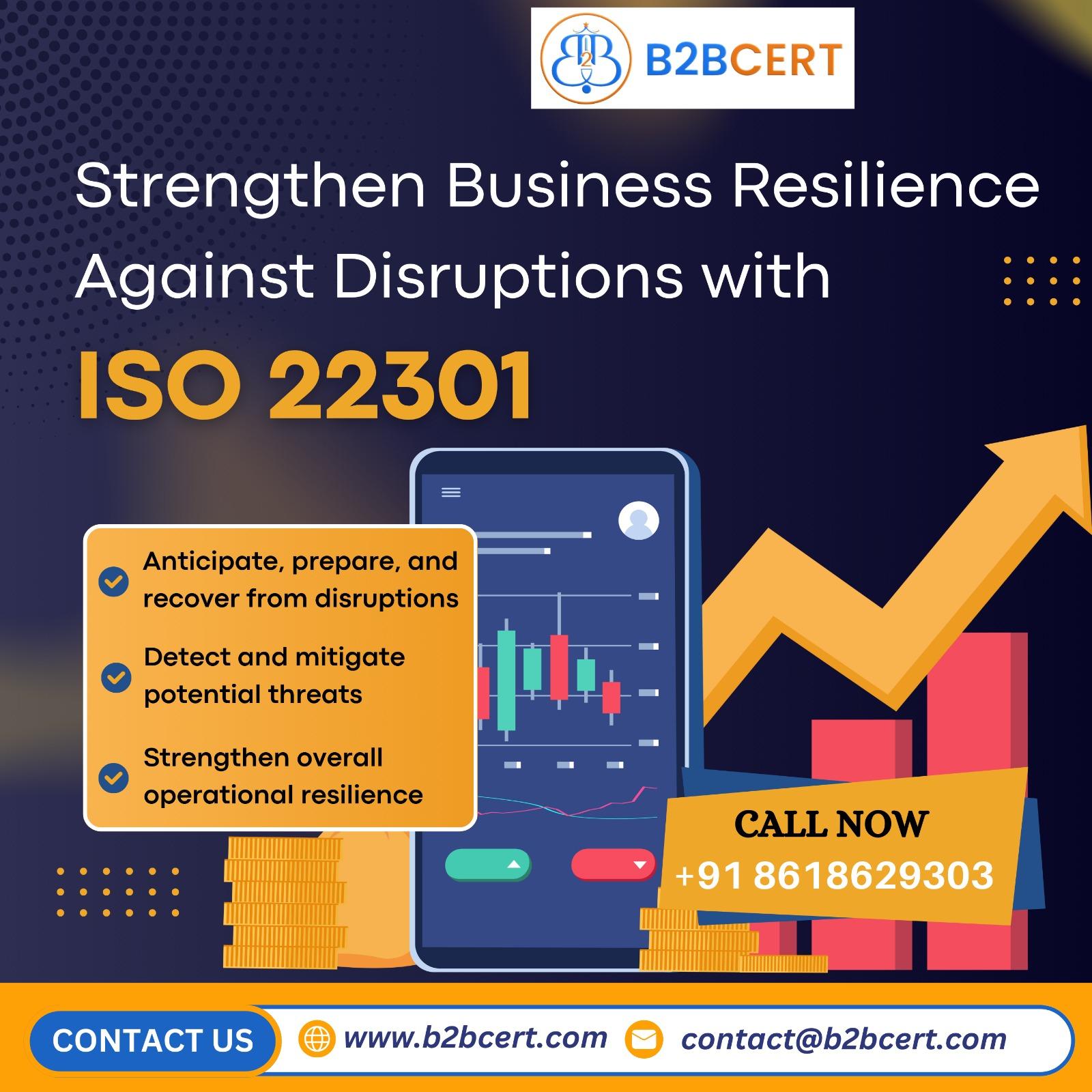ISO 22301 Certification in Bangalore - In today’s unpredictable business environment, organizations must be prepared for disruptions that can impact operations, reputation, and financial stability. Business Continuity Management Systems (BCMS) provide a structured framework for ensuring that critical business functions continue during and after disruptive events. ISO 22301, the international standard for BCMS, emphasizes not only the implementation of business continuity strategies but also the continuous monitoring, measurement, analysis, and evaluation of BCMS performance. This ensures that organizations remain resilient, responsive, and capable of meeting stakeholder expectations.
Understanding BCMS Performance Monitoring
Monitoring BCMS performance involves the systematic observation and tracking of processes to ensure that business continuity objectives are being met. It forms the foundation for effective decision-making and improvement initiatives. Key monitoring activities include:
-
Tracking Key Performance Indicators (KPIs): Organizations identify KPIs aligned with their business continuity objectives. These KPIs may include recovery time objectives (RTOs), recovery point objectives (RPOs), incident response times, and the effectiveness of recovery exercises. By continuously monitoring these indicators, organizations can detect potential gaps and take proactive corrective measures.
-
Reviewing Incident Reports: Every incident, whether minor or major, provides critical data for assessing BCMS performance. Monitoring incident reports allows organizations to identify recurring issues, understand their root causes, and refine response strategies.
-
Audit and Compliance Checks: Regular internal audits and compliance reviews ensure that BCMS processes adhere to ISO 22301 requirements and organizational policies. Monitoring audit results helps identify areas for improvement and ensures the system remains compliant and effective.
Measurement: Quantifying BCMS Effectiveness
While monitoring provides observational insights, measurement quantifies BCMS effectiveness. Measurement involves collecting data to evaluate whether business continuity objectives are achieved. Some essential measurement activities include:
-
Business Impact Analysis (BIA) Metrics: Periodically updating BIA data allows organizations to measure the potential impact of disruptions and the effectiveness of mitigation strategies.
-
Recovery Time Assessment: Measuring actual recovery times against established RTOs helps organizations gauge the efficiency of their response and recovery procedures.
-
Resource Availability: Measurement of resources such as personnel, technology, and infrastructure ensures that critical assets are adequately prepared for continuity operations.
Effective measurement requires well-defined metrics, accurate data collection, and consistent evaluation methods. By measuring BCMS performance, organizations can demonstrate resilience to stakeholders and regulatory bodies, building trust and credibility.
Analysis: Turning Data into Insights
Data collected through monitoring and measurement is only valuable when analyzed effectively. Analysis involves interpreting information to identify trends, patterns, and anomalies in BCMS performance. Key aspects of BCMS analysis include:
-
Trend Analysis: Observing historical data allows organizations to identify patterns in incident occurrences, resource utilization, and response effectiveness. Trends provide insights into areas that require proactive intervention.
-
Gap Analysis: Comparing actual performance against desired objectives helps identify gaps in processes, resources, or training. Gap analysis supports targeted improvement initiatives and strategic decision-making.
-
Root Cause Analysis: Analysis also involves identifying the underlying causes of disruptions or performance deficiencies. Understanding root causes ensures that corrective actions address issues at their source rather than just their symptoms.
Through analysis, organizations can make informed decisions, optimize resources, and enhance overall resilience.
Evaluation: Assessing BCMS Performance Holistically
Evaluation is the process of assessing BCMS performance in a comprehensive manner, often combining monitoring, measurement, and analysis insights. Evaluation ensures that the BCMS remains aligned with organizational goals and external requirements. Key evaluation practices include:
-
Management Reviews: Top management periodically evaluates BCMS performance to ensure that objectives are met, resources are adequate, and improvement opportunities are identified. These reviews are crucial for aligning BCMS with strategic goals.
-
Simulation Exercises and Drills: Conducting mock scenarios and recovery exercises evaluates the effectiveness of business continuity plans in real-world conditions. Lessons learned from these exercises inform continuous improvement efforts.
-
Stakeholder Feedback: Gathering feedback from employees, customers, and partners helps evaluate the practical effectiveness of BCMS processes and highlights areas for enhancement.
Evaluation serves as a feedback loop that drives continuous improvement, ensuring that organizations not only comply with ISO 22301 requirements but also maintain robust resilience against future disruptions.
The Role of ISO 22301 Certification in Enhancing BCMS Performance
Achieving ISO 22301 Certification in Bangalore demonstrates an organization’s commitment to effective business continuity management. Certification ensures that monitoring, measurement, analysis, and evaluation processes are standardized, consistent, and aligned with best practices.
Organizations seeking to implement or enhance their BCMS can benefit significantly from partnering with expert ISO 22301 Consultants in Bangalore. These professionals provide guidance on defining performance metrics, designing monitoring processes, conducting audits, and evaluating overall BCMS effectiveness.
Additionally, ISO 22301 Services in Bangalore offer comprehensive support, including training, gap assessments, and internal audits, enabling organizations to optimize their business continuity strategies and achieve sustainable resilience.
Conclusion
Monitoring, measurement, analysis, and evaluation of BCMS performance are integral to ensuring organizational resilience. By systematically tracking performance, measuring outcomes, analyzing data, and evaluating results, organizations can identify gaps, improve processes, and strengthen their response to disruptions. Achieving ISO 22301 Certification in Bangalore, with support from experienced consultants and service providers, empowers businesses to maintain continuity, protect stakeholders, and thrive even in the face of uncertainty.
Investing in robust BCMS practices today ensures that organizations are prepared for tomorrow’s challenges, demonstrating resilience, accountability, and a commitment to excellence.



